Tehran(Bazaar): I would like to note that now we see that Iranian business is working in Russia more consciously and purposefully than before, but still this is clearly not enough , Vladimir Obydenov tells Bazaar in an exclusive interview.
Noting that business ties between the two countries will expand significantly in the coming years, he also says, "we are actively working on together with our colleagues from the Iranian-Russian Joint Chamber of Commerce, the Tehran Chamber of Commerce, Industries, Mines and Agriculture, the Iranian Chamber of Cooperatives and other regional associations of Iranian entrepreneurs".
Vladimir Obydenov is the Chairman of the Russian-Iranian Business Council and Head of the group of companies “Antares”.
Following is the text of the interview:
Bazaar: Russian President Vladimir Putin announced last year that a free trade zone would soon be established between the Eurasian Economic Union (EAEU) and Iran. The President also announced the decision to start the first phase of negotiations on a free trade agreement with Iran, emphasizing that Iran's presence in the Eurasian Economic Union could expand trade and deepen relations between the member countries of the union with Iran lead. In your opinion, what is the reason for the Russians' desire to create a free trade zone with the presence of Iran?
Obydenov:The creation of a free trade zone between the EAEU and Iran will enable to trade on more acceptable and favorable terms in a preferential treatment, and that is especially important under rather tough Western sanctions.
The creation of a free trade zone and lowering the threshold of customs restrictions will contribute to the growth of trade turnover between Russia and the EAEU as a whole.
As you know, active work is underway in this direction. In 2019, the Interim Agreement entered into force, leading to the formation of a free trade zone between the Eurasian Economic Union and its member states, on the one hand, and the Islamic Republic of Iran, on the other.
The Agreement includes a priority list of goods for which it is planned to reduce or eliminate import duties in mutual trade. According to experts of the Eurasian Economic Commission (EEC), the agreement covers 50% of the volume of mutual trade, which undoubtedly indicates the significance and seriousness of the agreements.
The main advantages that entrepreneurs of the Union countries and Iran receive include savings in the payment of import customs duties, a transparent and predictable environment for mutual trade.
In addition to reducing import duties, the Interim Agreement provides for the parties to comply with the fundamental principles of international trade.
An agreement was also reached not to apply unreasonable non-tariff measures restricting trade in relation to the goods listed in the Agreement.
In July of this year, negotiations were held in Tehran between the Iranian delegation and the EAEU delegation regarding a new agreement on a free trade zone, which should include agreements on expanding the product range, supporting industry cooperation and increasing transparency in public procurement.
Also recently, a meeting was held between the Minister in charge of Integration and Macroeconomics of the EAEU Sergei Glazyev and the Iranian Ambassador to Russian Federation Kazem Jalali, at which the high pace of work on the new agreement was noted.
Bazaar: To what extent is the North-South Corridor and the participation of Iran and Russia in this corridor effective in increasing trade relations between the two countries?
Obydenov: Before making any concrete conclusions about the effectiveness of the North-South International Transport Corridor for the development of trade relations between our countries, it is necessary to turn to more actual problems and distract from posing the issue in a global aspect.
At the moment, Russia and Iran need to solve a number of logistical problems, including the instability of road transport across the Iran-Azerbaijan border, difficulties associated with the transportation of goods by sea along the Caspian Sea (insufficiently developed infrastructure of Caspian ports, lack of phytosanitary control posts in ports, silting Volga, preventing the passage of merchant ships to the port of Astrakhan, etc.). As a result, there is a need to find alternative logistics routes. The Russian-Iranian Business Council is actively involved in work on this important issue.
In particular, one of our proposals, which we are currently submitting to the interstate level, is the creation of a route for the Iranian-Russian cargo traffic through Turkey, namely through Samsun port.
Bazaar: In the "One Belt - One Road" project, one route passes through Russia to reach Europe and another route to Iran, which Chinese officials say may be China's priority. If the Chinese prioritize Iran's path, will it affect Iran-Russia relations or not?
Obydenov: As the Chairman of the Russian-Iranian Business Council, I believe that any global project that develops ties between regions and their infrastructures will undoubtedly help strengthen trade relations. I am confident that the Belt and Road Initiative is a promising project that has its own strengths both in the Russian direction and in the Iranian direction.
We, as representatives of the business community striving to develop and deepen trade relations with Iran, are interested in any route that increases the effectiveness of multilateral trade and economic relations of Russia, including with Iran, our long-standing and reliable partner. The main thing for us is that the goods are delivered along a safe route, with the lowest costs, quickly and on time.
Bazaar: According to economists, the creation of a single currency system in the Eurasian region for trade is a kind of confrontation with the rule of the dollar and unilateral US policies in the world. On the other hand, any attempt to establish a common currency in the Eurasian Economic Union will inevitably face resistance from representatives of the independent member states of the union who do not want to lose their independence. What are the consequences and benefits for member countries in creating this common currency? What is your assessment of this?
Obydenov: I would like to note, as was previously stated by the representative of the Eurasian Economic Commission, at the moment there are no plans to introduce a common currency in the EAEU. Thus, it is too early to talk about the consequences and benefits of the single currency system.
However, the EAEU, of course, strives to create a single payment space, and we see a tendency towards a gradual abandonment of payments in third-country currencies (in dollars and euros) and towards increasing mutual settlements in national currencies. If in 2013, during the period of the Eurasian Customs Union, mutual trade in national currencies was 63%, then in 2019 it was already 74%.
Bazaar: How can Iran's export volume to Russia be increased? In fact, what is the best way to develop the export of non-oil items to Russia?
Obydenov: If Iran seeks to multiply the trade turnover with Russia, then perhaps to some extent it should follow the path of Turkey. I mean, Iranian companies maybe should take the same steps that Turkish companies have been taking for a long time in Russia, namely, to actively create representative offices and trading houses, and agree to deferred payment terms. An important factor on this path is the creation of joint ventures with Russian companies for a wide range of goods – from food to building materials.
In addition, it is necessary to develop information exchange between Russian and Iranian companies in order to get acquainted with the market potential, check the reliability and financial capabilities of a potential counterparty.
It is extremely important to exchange information about various conferences and specialized exhibitions held in our countries, because participation in them for Russian and Iranian companies is a very significant factor in the further development of trade relations. A good example in this regard is the recent exclusive exhibition Eurasia Expo held in Tehran in July this year. The Russian-Iranian Business Council took an active part in it.
Also, among the Russian companies participating in the exhibition, for example, the enterprises of the Tver region can be distinguished. The Tver delegation was represented by the President of the CCI of the region Vladislav Shorikov, and it included manufacturers of food products, oil and gas equipment, furniture, building materials, and electrical equipment.
In turn, it would be very useful for companies from Iran to participate in exhibitions held on the territory of the Russian Federation. It is also worth noting such a venue as JSC «Expocentre», which regularly holds major exhibitions in Moscow.
I would like to note that now we see that Iranian business is working in Russia more consciously and purposefully than before, but still this is clearly not enough.
Nevertheless, we are confident that business ties between the two countries will expand significantly in the coming years, which we are actively working on together with our colleagues from the Iranian-Russian Joint Chamber of Commerce, the Tehran Chamber of Commerce, Industries, Mines and Agriculture, the Iranian Chamber of Cooperatives and other regional associations of Iranian entrepreneurs. Now the Russian-Iranian Business Council is planning and implementing broad cooperation with such Iranian companies as Iran Khodro, Romak Food Logistics Center, Sabalan Plastic, Pegah, PGPICC, Kondori Industrial Factory, etc.
I would like to emphasize that cooperation with Iran occupies an important place in the international activities of the Chamber of Commerce and Industry of the Russian Federation, in the system of which the Russian-Iranian Business Council has been working for many years. The initiatives and undertakings of the Business Council always receive the necessary support from the Russian Chamber of Commerce and Industry.
Bazaar: Why are the private sectors of the two countries lagging behind in terms of economic cooperation?
Obydenov: Much for the same reasons that I outlined in the answer to the previous question. Sanctions also play an important role, because of which Russian companies often behave cautiously in trade with Iran.
Do not forget about such a factor as the coronavirus pandemic. In addition, there is insufficient knowledge of the market realities of the partner country that exists on both sides. This leads to a certain degree of apprehension about doing business with a neighboring country. Our Business Council in this regard provides Russian and Iranian businessmen with constant support, including checking counterparties for reliability and providing information on the markets of the two countries.
Bazaar: Which country has the most trade with Russia?
Obydenov: As well as Iran, Russia has the largest trade turnover with China.

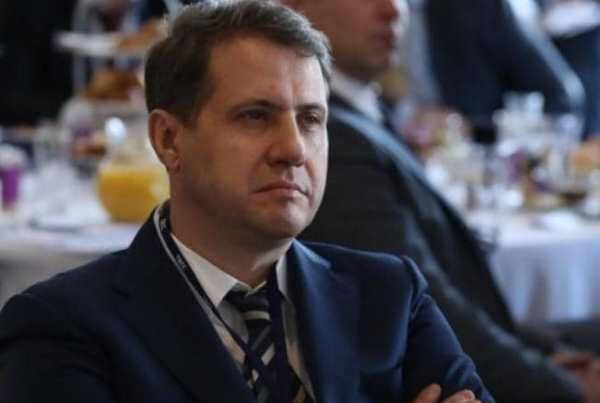





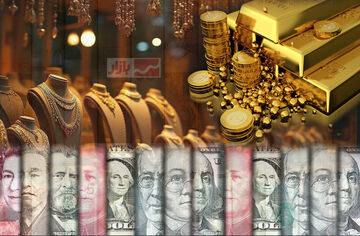

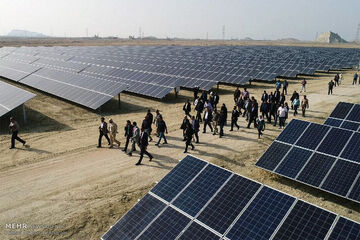

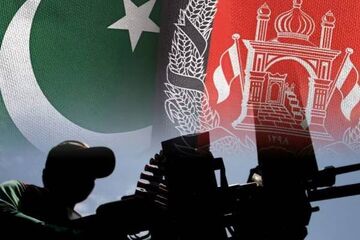
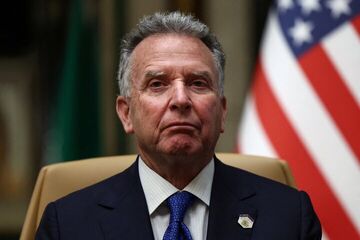
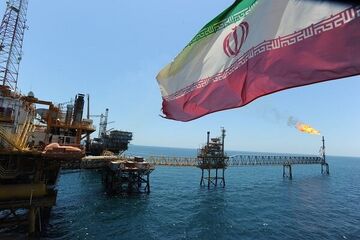
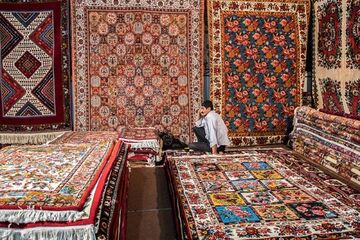
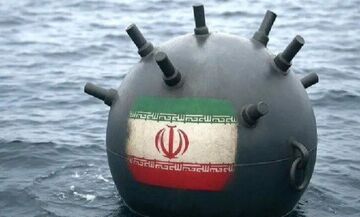
نظر شما